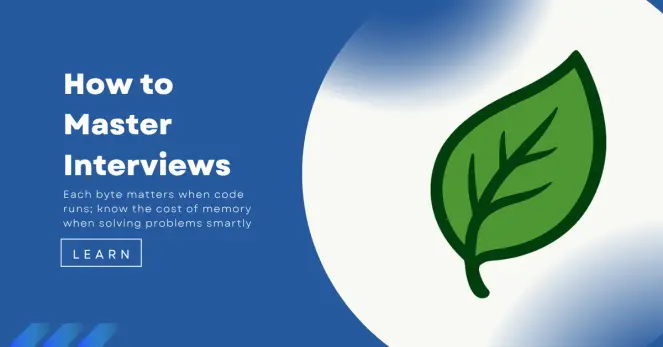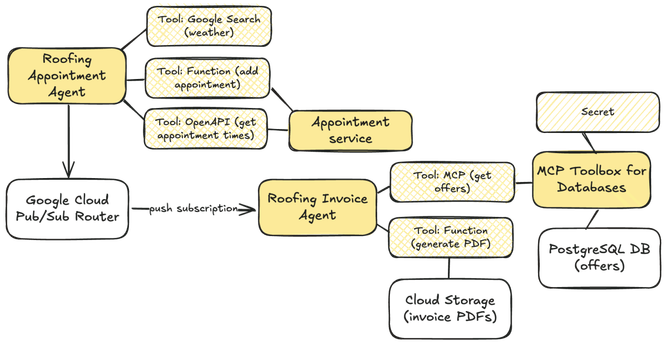Stop chasing the "productivity delusion"! My new article explains why focusing on typing speed and multitasking is a trap and how to achieve twice the impact with half the work.

Stop chasing the "productivity delusion"! My new article explains why focusing on typing speed and multitasking is a trap and how to achieve twice the impact with half the work.

Azure & DevOps Podcast Episode 359 - Philip Japikse: Catching up | with host Jeffrey Palermo.
buff.ly/8Jj2Krq
#podcast #devcommunity #ai #softwaredev #softwaredesign
Azure & DevOps Podcast: Philip...
Azure & DevOps Podcast Episode 359 - Philip Japikse: Catching up | with host Jeffrey Palermo.
http://feed.azuredevops.show/philip-japikse-catching-up-episode-359
Tired of struggling in coding interviews?
“The Ultimate 5-Step Problem Solving Framework To Master Interviews” offers a practical, repeatable method for technical problem-solving. Works in interviews
Works in real-world coding
Read it here: https://grasscoder.com/the-ultimate-5-step-problem-solving-framework-to-master-interviews/
#CodeNewbie #SoftwareDev #TechTips #Interviews

When you see "increased efficiency", translate that to "increased fragility and parasitic load".
When you read about "redundancy", what they really mean is "resiliency".
The real world is bursty, uneven, inconsistent, error-prone, heterogeneous. It is not amenable to assembly lines. Efficiency predicated on eliminating those forms of waste cannot survive common system shocks.
And we're in a period of enormous system shock.
Code was the least interesting part of my multi-agent app, and here’s what that means to me | by Richard Seroter.
buff.ly/4wgbg3j
#ai #softwaredev #aiagents #multiagent
Code was the least interesting...
Code was the least interesting part of my multi-agent app, and here’s what that means to me | by Richard Seroter.

Bonus: I've even included a command to generate a sudoers configuration for the providers that need them.
I think that's as helpful as I'm willing to be at this point
I think I've reached a compromise I'm happy with for managing the (very few) bits that require privileges in my patch reporting program.
I'm going to skip the functionality by default, and users can opt in to the behavior where the program assumes you've setup a sudoers entry on managed systems yourself with NOPASSWD:, restricted to the one command it needs.
I've made this as explicit, rigid, and extensible as I could, wrapped it in the form of a Sudo Policy, and made it configurable globally _and_ at host level.
Good Enough for Me(tm)
I'm wrapping up the last tasks before I can release my neat application that gives you aggregated reporting of updates on hosts over ssh.
I've been writing nightmare abstractions to handle the case where some package managers need sudo to refresh metadata from repositories (Debian, for instance). I personally just do NOPASSWD for the command in sudoers on my stuff.
The nightmare comes from password prompting. I'm at the point where I have half a mind to just... not do it?
And instead require users to setup sudoers like that if they want to sync repositories on systems where it's needed. I'd of course document it nicely.
Is that insane? As a user would that just make you go "URGH" and fiercely uninstall everything before emailing me a picture of your middle finger?
I just completed a 12-week online program in software engineering and quantum computing with QuLearnLabs.
It was a great experience where I got to learn more about software engineering, quantum computing fundamentals and python programming.
#quantumcomputing #softwaredev #webdev #ai #python #softwarengineering #qulearnlabs
NEW on We
Open Source
Avindra Fernando shares how learning to skate with his daughter shaped his view on software architecture & team building. Insightful thoughts on continuous learning, system thinking & collaboration.
Read more: https://allthingsopen.org/articles/podcast-build-better-software-stronger-teams
I've been primarily on bsky but I also like the idea of mastodon. I haven't had time to sit down and really make it work for me, but I'm moderately optimistic.
Hello, world. I'm Golly, and I'm going to be posting about being a software developer and devlogs about making a text game that's currently just called "the merchant game". Fingers crossed this goes somewhere.
We've been quiet but busy at Sonorous Arts over the past few days.
A lot of work is going into improving the user experience on our website, and our internal services are receiving major upgrades.
We've also assigned a dedicated team to research future advancements, focusing on emerging technologies, creative tools, and new ways to bring more value to the community.
I’m adamantly _not_ a fan of LLMs trained on scraped publicly-available data, and that goes double when used for coding. And so many of the examples people put forward for using it to code are along the lines of “I asked it for an app to do X, and was up and running super-quick!”
That seems like a templating issue to me. My current day job is mostly #Rails, and its generators (built-in and extensible) allow for automating a lot of the boilerplate building models, migrations, etc. Sure you still need to do some customization, but even with the “LLM success stories” there’s always a bit where they say “I had to tweak a few things, but it worked!”
So would it be a crazy idea to have a collection of templates and or code snippets to do some task in some framework/environment? Tag it for easy search, etc. i.e., if I needed OAuth in my Rails app I could search “oauth rails” - maybe “oauth rails_8” if I know I want the latest major framework version. Integrate the result with my app, and move on.
I can see plenty of issues. For one thing it’d be basically stackoverflow, but with gists that are a bit more organized. So someone would still have to understand what was going on. But if they’re copying answers from SO or anywhere into their code without first looking at the _why_ of how it supposedly fixes the issue, that’s the first problem to address.
More generally, it’d be great if framework and other teams would put out these kind of things on their own, so someone finding them could be reasonably sure best practices had been observed. But having done dev and doc writing for decades, I know how overwhelmed everyone gets.
Stay ahead in IT Infrastructure & Development!
Follow me: @kevinveenbirkenbach@microblog.cymais.cloud for #CyMaIS news at https://cymais.cloud
Topics: #CloudComputing #DevOps #Microservices #Kubernetes #SoftwareDev #CyberSecurity #Automation #DigitalTransformation
Trends: #InfrastructureAsCode #CI #CD #Serverless #Agile #BusinessGrowth #StartupLife #DigitalStrategy
Connect & grow together!
AI won't replace developers. It will amplify us. Now is the perfect time to learn coding and help solve real problems.
#SoftwareDev #AI #Tech https://substack.com/home/post/p-165655726

Tuple inside Dictionary in Python:
Tuples can be used as dictionary keys because they are immutable and hashable, unlike lists.
#Python #CodingTips #LearnToCode #DevLife #Programming #CodeNewbie #PythonTips #Techie #SoftwareDev #100DaysOfCode #DataScience #AI #MachineLearning #CodeSmart #developerlife
Highlights from Git 2.50
buff.ly/xuffRBX
#git #oss #github #softwaredev
Highlights from Git 2.50